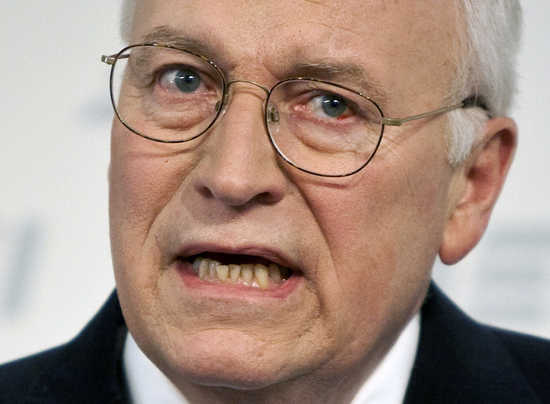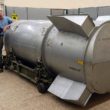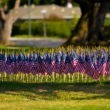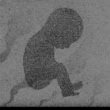“If you could go back to 1889 and strangle Adolf Hitler in his crib, would you do it?” David Brooks asks in the lead paragraph of his column in Tuesday’s New York Times.
The answer is obvious, Brooks says. No Hitler. No charismatic leader of the Nazi Party. No Holocaust.
And then in his signature-mark dispassionate and overly erudite voice, Brooks fills the 850-word space provided to him by the Times with a convincing but utterly dishonest “mistakes were made” defense of the decision by George W. Bush and Dick Cheney to invade Iraq.
The “intelligence” that informed the “16 words” in George W. Bush’s 2003 State of the Union Address—“the British government has learned that Saddam Hussein recently sought significant quantities of uranium from Africa”—which served as a predicate for the Iraq war, was provided by Cheney.
Brooks is either dishonest or misinformed.
It’s malfeasance or misfeasance.
Consider.
“There’s a fable going around now that the intelligence about Iraq was all cooked up by political pressure,” Brooks writes.
“That doesn’t gibe with the facts.”
But it does.
When Jake Bernstein and I were working on Vice: Dick Cheney and the Hijacking of the American Presidency, we interviewed CIA sources and a retired CIA analyst who described some of the cooking that Cheney did to create the intelligence he needed to justify the United States military destroying a sovereign nation that represented no threat to our national interest.
Cheney’s conduct regarding the CIA was unprecedented and unprincipled. And probably illegal.
The CIA is the only federal agency that makes daily house calls to the White House, sending briefers to deliver what’s called the President’s Daily Briefing, a closely guarded report available to six or seven people at the top of the administration.
The briefers develop working relationships with their principals, and at times are sent back to look at the “raw traffic” for additional information.
Unhappy with the intelligence his briefer was providing, Cheney fired him.
“I’ve never heard of a briefer being fired,” a former agency analyst told me. “It’s unprecedented.”
Never a slave to precedent, Cheney fired a second briefer when the intelligence on Iraq was unsatisfactory.
The firings sent a message to the CIA agents analyzing information gathered on Iraq. But that wasn’t enough. Cheney began making his own house calls to the CIA headquarters in Langley, Virginia.
In the run up to the Iraq war, Cheney made between eight and 15 trips to Langley, often accompanied by his Chief of Staff Scooter Libby, to work with agents and analysts preparing intelligence reports on Iraq.
The president and vice president visit Langley to cut ribbons, make speeches, and hand out awards—never to shape intelligence. The exception to that unwritten rule was Dick Cheney.
Nor did Cheney stop with what he did or didn’t get from the CIA.
The “intelligence” that informed the “16 words” in George W. Bush’s 2003 State of the Union Address—“the British government has learned that Saddam Hussein recently sought significant quantities of uranium from Africa”—which served as a predicate for the Iraq war, was provided by Cheney.
It was the vice president who obtained from the British in 2002 a file of Italian origin that claimed Hussein had tried to purchase uranium from sources in Niger.
By the time Cheney got the documents, CIA analysts already had recognized them as crude forgeries. But under pressure from the vice president, the agency asked French intelligence to investigate the claim.
Alain Chouet, director of French intelligence told the Los Angeles Times what his agents found: “We told the Americans, ‘Bullshit, this doesn’t make any sense.’”
False intelligence notwithstanding, Bush used the report to make the false claim about Hussein’s attempt to acquire uranium in his 2003 SOTU.
When the CIA dispatched former ambassador Joe Wilson to Niger to further investigate the claim, it was Cheney and Scooter Libby (who ultimately was convicted for his role in the episode) who went after Wilson and his wife, CIA agent Valerie Plame.
In the evidence file in the federal criminal case against Libby is a photocopy of Wilson’s July 6, 2003, opinion piece in The New York Times, debunking the Niger yellow-cake story.
Penciled in the margin is a question: “Have they done this sort of thing before? Send an Amb. to answer a question? … Or did his wife send him on a junket.”
The marginalia on the page is in the handwriting of Dick Cheney.
Beyond cooking up intelligence, Cheney was an accessory to the crimes—obstruction of justice, perjury, making false statements—for which his former aide was convicted and which involved the outing of a CIA agent.
There is more.
The original 48-page “backgrounder” that the White House provided Secretary of State Colin Powell for his February 2002 speech to the Security Council, which made the case for war, was shaped by Libby, so it is almost impossible that his boss wasn’t deeply involved.
Powell read it and declared it “bullshit” and tossed the entire document. He turned to a National Intelligence Estimate on Iraq, which was better sourced but as flawed as the document he had described as “bullshit.”
“The Iraq war error reminds us of the need for epistemological modesty,” Brooks writes.
That’s bullshit, even if written in the lingua franca of the salons frequented by Brooks and other apologists for what Bush and Cheney visited on the people of Iraq.
The Bush administration created the intelligence that justified a war that was illegal, unethical and profoundly tragic. A far better argument is made by Jonathan Chait in New York Magazine.
Chait recognizes the narrative crafted by Brooks and other apologists for what it is—an effort to sustain the last line of defense left to the perpetrators of the Iraq war:
- “Pretend that an intelligence failure and a deliberate effort to cook the intelligence are mutually exclusive. It was a mistake. Therefore, it could not have also been a crime.”
Back to David Brooks’ conceit regarding Hitler.
If you could back to January 30, 1941, and strangle Dick Cheney in his crib, would you do it?
There is, of course, no equivalency. But pose that question to an Iraqi widow living in Anbar Province today.
She might be so lacking in epistemological modesty that she would dare to answer it.
—Lou Dubose
May 20, 2015
Lou Dubose is the editor of The Washington Spectator.







What I don’t understand is why Bush and Cheney are not in prison. Clinton would be in prison, Obama they’d cut into a thousand chunks, but Bush and Cheney kill over a million people and keep freedom.
Though it will never happen, they should both be indicted and tried.
Bush knew the Saddam-9/ll-nuke linkage was bogus. Richard Clarke, his security adviser: Mohammad el Borradei, the UN nuclear expecter; Hans Blix, the UN WMD investigator on the ground in Iraq–all told him so. German intelligence told him the informant “Curveball” was either lying or crazy. British MI-5 told him the Nigerian uranium yellow-cake order was a forgery. Rumsfeld and Wolfowitz muzzled Gen. Shinseki after he told Congress several hundred thousand troops would be needed; Cheney insisted our troops would be greeted with flowers. All three of them had signed an open letter to Pres. Clinton urging invasion in 1992. For Judith Miller of the NY Times to blame this on faulty intelligence is–what’s the polite word?–disingenuous.
Remarkable that we are re-litigating what has long been established as fact.
What I don’t understand is why we, the American public, have taken this so quietly. We should be screaming in the streets, if not demanding thar more heads roll. Are we so cowed? So tired of politics and politicians that we really think they are all on the take? So beaten down by the Cheneys and the Bushes that we can’t see the forest for the trees? That we would even for a second consider putting another Bush in the White House? Think for just a minute what we could have done with some of the $$$ spent on just the Iraq war.It is beyond sickening.
Beyond the money, of course, is the lost and destroyed lives. Not one of the men whose actions destroyed a country would want to wake up in Ramadi this morning. “There is no longer any doubt as to whether the current administration has committed war crimes. The only question that remains to be answered is whether those who ordered the use of torture will be held to account.”
— Maj. Gen. Antonio Taguba, June 2008
There is an interesting analogy to Cheney’s behavior when you examine what happened in the Challenger Shuttle disaster. The decision-makers were pressured to change from proving that it was safe to fly to proving that it was unsafe. With all of the uncertainties, despite the number of variables outside of acceptable limits, it was impossible to prove the negative, so the flight went in sub-freezing weather with the resulting tragedy. That’s what Cheney did, task the CIA to prove him wrong with 100% certainty. It could not be done, so the tragedy proceeded. May he burn in Hell.
Dick Cheney created an equation that could almost justify going to war with Canada:
Ron Suskind describes the Cheney doctrine as follows: “Even if there’s just a 1 percent chance of the unimaginable coming due, act as if it is a certainty. It’s not about ‘our analysis,’ as Cheney said. It’s about ‘our response.’ … Justified or not, fact-based or not, ‘our response’ is what matters. As to ‘evidence,’ the bar was set so low that the word itself almost didn’t apply.”
I reason that Cheny is not in jail because of political gutlessness, of weathervane winds of influence, fear, spineless intimidation and preservation of status and power by those who have the power and authority to charge him….and he counts on this. This syndrome garbles the obvious, practical, no-brainer, common sense solutions or courses of action to our most serious domestic and foreign policy issues and situations. Obsfuscation, gobbledygook, misdirection, and of course bald face lies are his smoke screens. I can substitute a catalog of names going back to the 30’s.
There is extreme reluctance to take legal action against a sitting or former President or Vice President, because it could invite a political retribution against someone else in the future. President Nixon clearly violated the law, but President Ford did not want that controversy to be boiling throughout his term of office. In Cheney’s case, what disturbs me is that the media is still giving him a platform and not shunning him. But it is not certain that he broke the law.
While I don’t think President Obama could have advanced a prosecution of his predecessors while managing two wars, an economy in free fall, and the collapse of the domestic auto industry, the Congress could have done great good by using its power to investigate.
Shades of our Vietnam experience. Creating a nation to defend against Communist aggression was Dulles’ “Blessing in disguise” when Ho agreed to temporarily partition his nation pending Referstion on reunion in 1956. The VN people had no say in Diem’s selection as leader of the nation RSVN established and maintained by rigged elections. All of our secret manipulation so were known in the 1980s but arr inconvenient facts today.
Interesting parallel.
After decades as a writer, reporter, editor, and journalism professor, I retired in 2000, just as the Cheney administration was elected by Scalia and Thomas. Perhaps I had too many stars in my eyes regarding the national U. S. news corps. But as I see what they have become in the past 15 years, I am glad I no longer try to teach young people who are interested in becoming journalists. I see little that I could encourage students to emulate. The lack of spine in covering the Iraq war is Exhibit A. I used to think David Brooks was simply the token conservative tolerated by the NY Times, but with episodes such as Judith Miller’s work while embedded in Iraq, I have lost faith in the paper I used to point students to as one of the fairest and most responsible in the nation.
There will be a truth commission someday. The Constitution Project’s Task Force on Detainee Treatment in the United States is a step in that direction. Given the debacles in the Middle East and Ukraine that day is approaching sooner rather than later.
Concerning observation about “the Cheney Administration,” the two paragraphs below are from a 1999 WAPO story elevating to mythical status Bush’s Iron Triangle: Karl Rove, Karen Hughes, and Joe Allbaugh. Having covered Bush for six years in Texas, I, too, was one of the reporters advancing this flawed argument, that these three–one brilliant but unethical political strategist, and two mediocracies—were going to remake Washington. Dick Cheney, Donald Rumsfeld, and David Addington had been strategizing together since Iran-Contra, Cheney and Rumsfeld since the Nixon administration. Bush was into his second term when he realized that his presidency had been highjacked.
AUSTIN – Gov. George W. Bush was sitting in his office in the Texas Capitol building, a few days before his first campaign trip to Iowa and New Hampshire. He was restless, like a boxer impatient to climb into the ring. The newsmagazine photographers had just finished shooting his portrait. Outside in the ornate reception area, a foreign visitor awaited him.
Bush was explaining why he had selected a trio of political advisers with virtually no experience in presidential politics to guide his candidacy.
On a related theme (unpunished illegal acts by Cheney and cohorts in Iraq), Philippe Sands made the case in his 2009 book, The Torture Team, that if any of the US officials (such as Cheney, Rumsfeld, etc.) were to leave the US, they can be subject to arrest and prosecution as war criminals. The clean, clear case presented by Sands of how this was done is chilling in its seeming routine nature. It also is quite disheartening that this transgression against our most fundamental moral and legal principles remains grossly unfinished. The guilty remain unaccountable. This is the motif of the leaders of an empire. It seems that most often, the only change is the result of a new group of empire leaders replacing those currently in power.